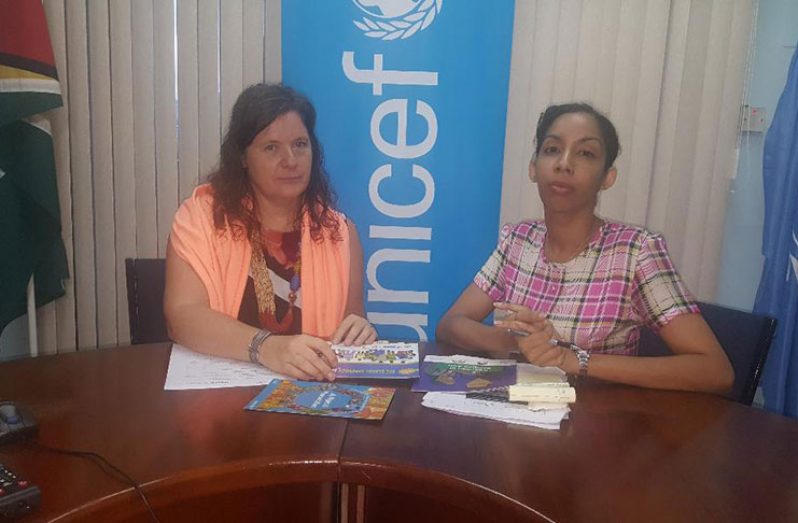By Alexis Rodney
THE United Nations Children Fund (UNICEF) is working with government to establish a youth court here to tackle issues of young offenders getting into contact with the law.
UNICEF’s country representative, Sylvie Fouet believes much more can be done to give youths a second shot at life, particularly children who found themselves on the wrong side of the law.
However for this to happen a system will have to be put in place to accommodate it.
“We’re moving forward with the youth court, a critical element as it seeks to facilitate the best interest of children. It is seeking a justice system that is helpful for children. Sometimes you don’t need to go to court; you just need to have lawyers and judges to do the paper work,” Fouet told Guyana Chronicle on Monday.
“We have the willingness, we have the prioritisation, and we have the network, we have the people pushing behind, these are all elements for success,” she said.
According to the UNICEF representative, part of the corporate agreement UNICEF has with government here, is for a justice system that is more youth-friendly, and a mechanism that will allow judges to be equipped with special skills set.
She said while the judges are performing well generally, there is still need for them to have particular training in the area.
According to her, a majority of children in conflict with the law are usually accused of very minor or non-crime related offences.
“They don’t have any reasons to be behind bars, but because the system is not always easy for the absorption of the cases, they are sometimes in proximity of adults and placed with adults and the consequence of this is that they may be exposed to temptation to other things.”
CHILD PRO JUSTICE
She said the aim is really to build the system and support child pro justice.
“So partly it is skills protocols, being aware of the child conventions and also guidance. At the end it has to be the state to take those steps,” Fouet said.
The youth court will be situated at the new aisle being developed next to the family court.
According to Fouet, the facility will be very accommodating.
“It’s like a school, it has shifts. So what’s important is you have a different way of approaching justice for minors,” she said.
Part of the objective behind the establishment of the youth court is to have children out of any inappropriate waiting or detention centre swiftly.
She said the majority of children are placed with adults and this does not help the process, while contending that children under 18 are really victims.
“I think that the youth court will speed up the process of solving cases and will also be a front to providing children with second chances, because those are minor crimes.”
Meanwhile, UNICEF’s Child Protection Specialist, Patricia Gittens said the youth court is part of the draft Juvenile Justice Bill which is supported by UNICEF.
UNICEF is supporting a number of measures to pre-empt the bill, which includes the Youth Court Access to Justice in the form of the Legal Aid for Children.
It also partners with the Rights of the Commission (ROC) and the Legal Aid Clinic.
It has also been historically involved in specific children legal aid measures. The partnership for the Youth Court, she said, is currently with the office of the Chancellor of the Judiciary.
UNICEF is also looking to establish a sexual offences court for the protection of children who are seen as actual perpetrators of the crime.


.jpg)











